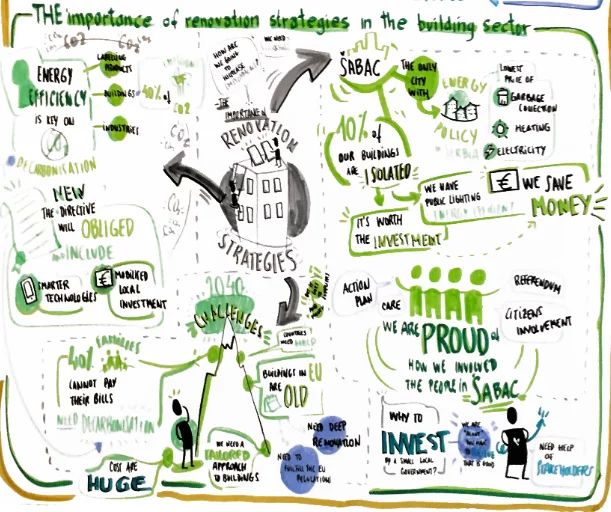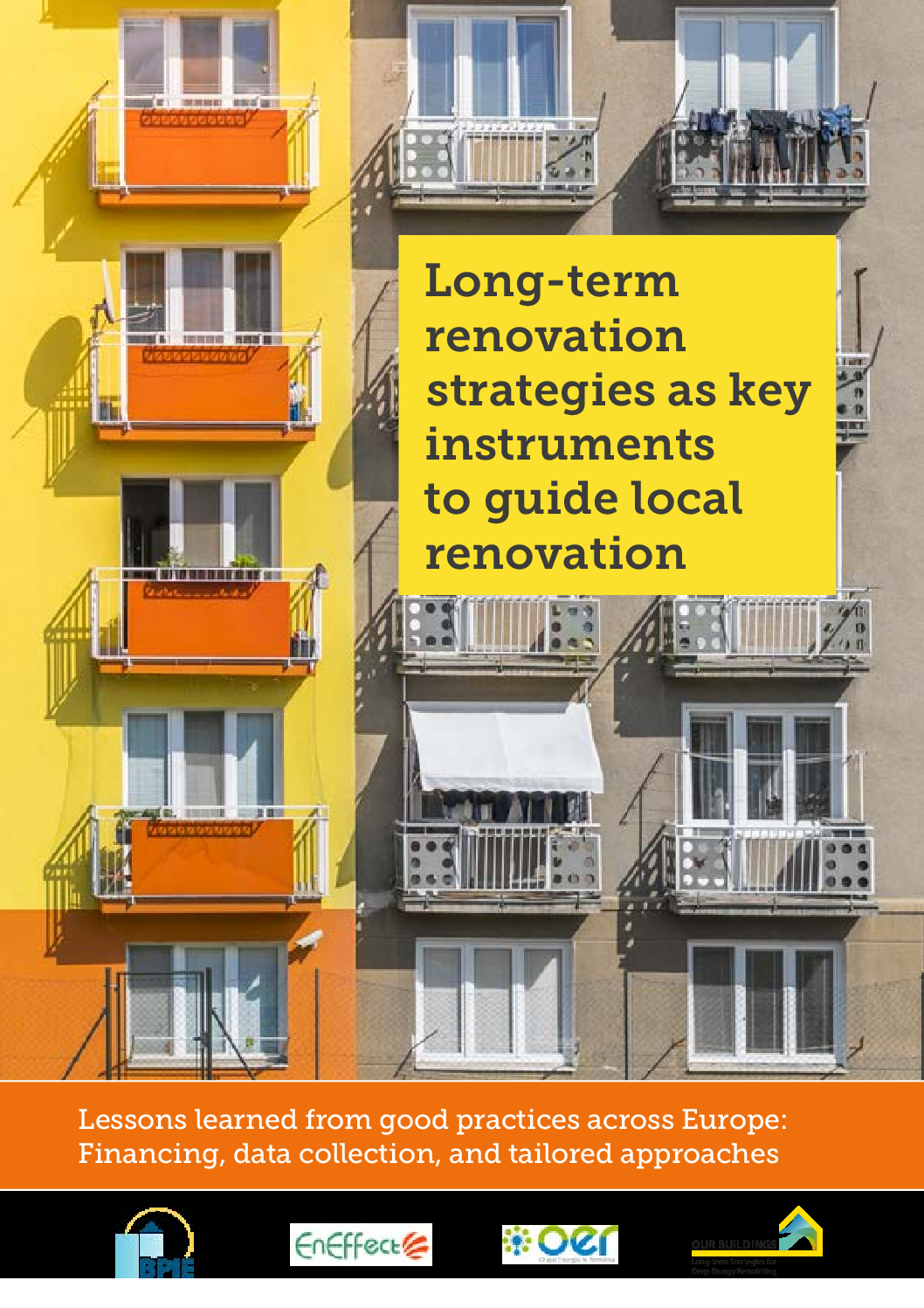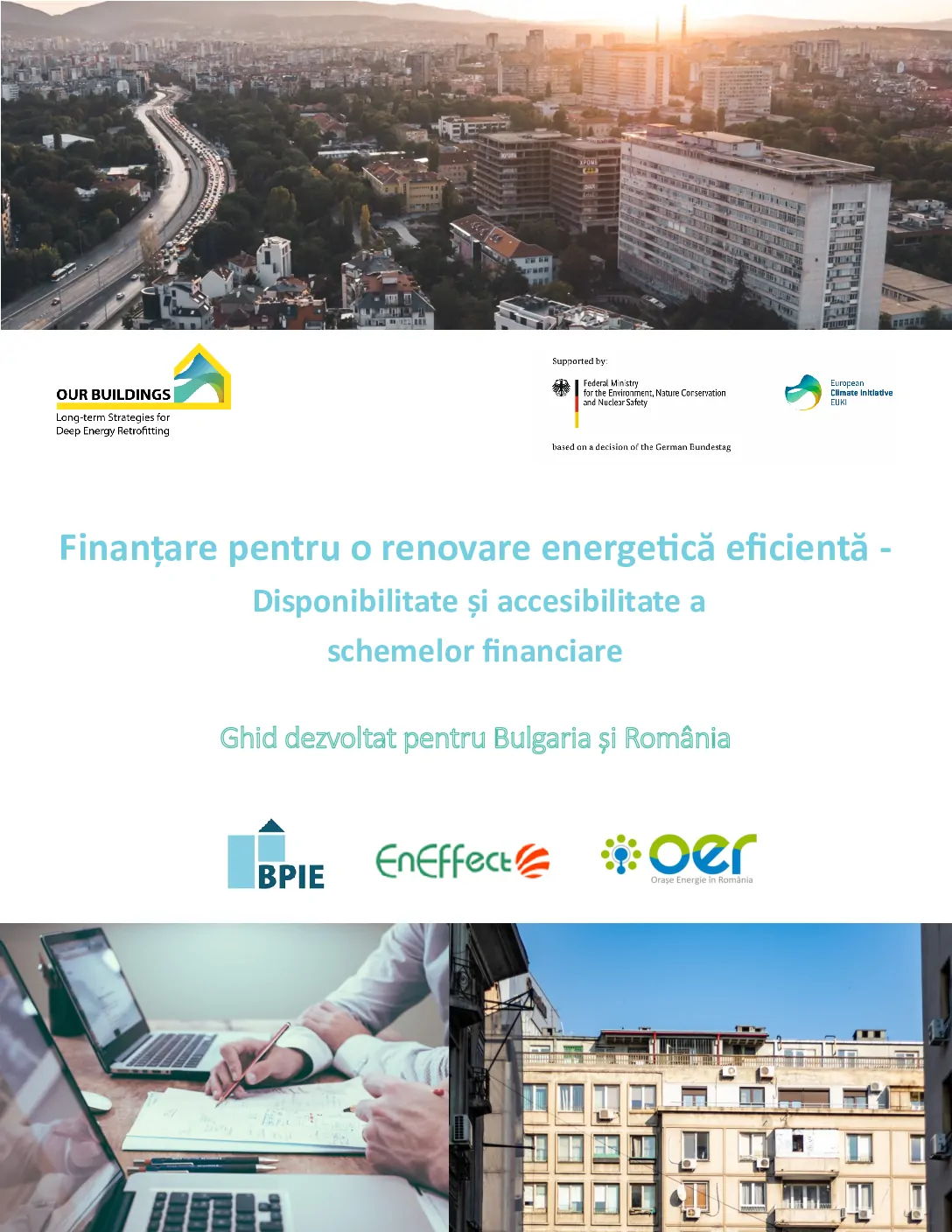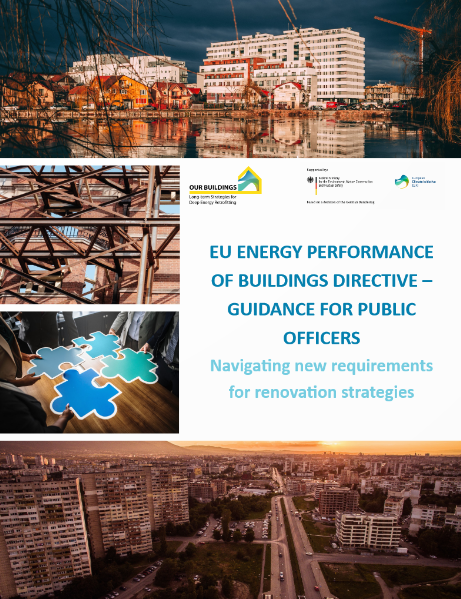Accelerating climate action buildings – strengthening civil society and policy-makers in Romania and Bulgaria (Our Buildings)
This project is completed. The EU Clean Energy Package brings changes to the way countries must draft and report integrated National Energy and Climate Plans (NECPs) and long-term renovation strategies to decarbonise their building stock by 2050. The project developed capacities and transferred knowledge enabling municipalities and civil society to integrate building renovation strategies into local and national energy and climate plans.
Climate Strategies and Plans Energy Efficiency Energy Transition and Climate-Neutral Buildings

Project info
Bulgaria, Romania
09/18 - 02/21
Civil society, Local governments, National governments, Non-governmental organisations, Associations, Public sector
419,593.27 €
Contact info
Sibyl Steuwer
- Energy Cities Romania/ OER
- Foundation Center for Energy Efficiency EnEffect
Background
Policy makers at regional and municipal level throughout Europe struggle to implement measures to boost renovation activities, and local players face multiple challenges in developing and implementing renovation strategies and climate plans. The local authorities’ limited involvement in national planning, the lack of capacity to contribute to national strategies and develop local strategies, and a shortage of financial and technical expertise are only some of the challenges. These challenges are particularly prevalent in the project’s target countries, Bulgaria and Romania, which are characterised by similar building stock, large run-down communist-era blocks and inefficient individual homes, contributing to air pollution and high CO2 emissions.
Project
The project enabled target groups to fulfil the EU Clean Energy Package requirements, while creating lasting benefits in Romania and Bulgaria. The project increased exchange between the two countries and disseminated results throughout South-East Europe. It created capacity, pursued policy coherence, contributed to common objectives, supported effective governance, trained national and local public officers and enabled civil society and national stakeholders to contribute proactively to the NECPs.
By the end of the project, civil society and stakeholders had increased their role in developing and implementing action plans for building renovation as well as in strengthening and creating new networks. Target groups were informed about changes introduced by the EU Clean Energy Package for all Europeans and were trained to incorporate renovation strategies in energy and climate plans. Partners communicated with public officers and stakeholders, trained public officers and stakeholders in municipalities and supported the development of municipal renovation strategies.
Results
- The first long-term renovation strategies using specific templates were finalised for 10 local authorities in Romania and Bulgaria, covering three different climate zones, as well as 10 building renovation passports.
- In Bulgaria, 5 pilot energy renovation programmes have been developed, targeting the cost-optimal renovation of large buildings, some of which achieve energy class A+. The total expected savings from the 8722 m2 of treated area are 2211 MWh/year primary energy savings and 617.5 tCO2/year emission savings, corresponding to an average saving of 253.49 kWh/m2/year or 70.80 kgCO2/m2.
- Five guides for long-term renovation strategies were produced, translated into three languages and disseminated in Bulgaria, Romania and through Europe-wide communication channels.
Last update: July 2024



